

Explainer: How has Saudi’s tourism sector coped with the Covid-19 crisis?
- Saudi Arabia
The kingdom is investing more in tourism infrastructure than any country in the world today, opines Fahd Hamidaddin, CEO, Saudi Tourism Authority
How has Saudi Arabia’s tourism sector handled the pandemic? Partnerships have been at the heart of Saudi’s mitigation and recovery programmes across the hospitality ecosystem, including close collaboration between the private and public sectors to create new and innovative ways of working together. At the Saudi Tourism Authority (STA), it has been our role to create a framework for the ecosystem to support local businesses in the private sector in the wake of Covid-19.
Over the past 12 months, our summer and winter domestic campaigns supported the local travel and tourism sector and provided opportunities for growth and development, even during the international lockdown. Throughout the Saudi Summer campaign, which ran between June and September 2020, average hotel occupancy was at nearly 50 per cent, with peak occupancy for some destinations at almost 100 per cent.
Despite increasing visitation to target destinations by more than 30 per cent year on year, our comprehensive approach to traveller safety meant that we did not see a corresponding spike in Covid-19 cases. STA continues to work with Saudi’s hospitality players, to provide the tools, learning and insights they need to increase their business opportunities.
Has this year been better than 2020 – so far? While borders have remained closed, our key focus has been on building a solid foundation to welcome guests back into the kingdom.
Our opportunity is unique. Saudi is a new leisure destination on the global stage. We are the authentic home of Arabia – a bold claim – but founded in multiple touchpoints and experiences, from our people and stories, to our hospitality and beautiful, iconic locations around the country.
We are in the process of developing an international network, a global community dedicated to driving awareness about Saudi and all the beauty, diversity and hidden treasures the destination has to offer.
In 2021, we have successfully launched a domestic winter and an international brand awareness campaign, reaching audiences in 26 countries and 13 languages – our biggest such marketing initiative ever. We launched our ‘Tourism Shapers’ programme, a new initiative to equip the local private sector with the support needed to navigate and manage the evolving tourism landscape.
We also engaged the international tourism trade through our ‘Journeys in Arabia’ programme, which introduced travel and tourism companies around the world to the experiences that make Saudi a unique destination. Amid the uncertainty that the past year has brought us, our strategy has been developed with one objective in mind: to achieve 100 million annual visits to Saudi by 2030, made up of both domestic and international travellers.
Saudi will continue to invest in developing new destination projects to support the local tourism ecosystem.
The kingdom has pushed for increased domestic tourism – have you seen that taking off? The tourism sector is thriving, driven by Saudi’s domestic market. Our launch of ‘Saudi Summer’ in 2020, a campaign designed to encourage Saudi nationals and residents to discover their own country, played a key role in supporting the local tourism industry.
As the largest domestic tourism campaign in Saudi history, we saw a 33 per cent increase in spend on hotels, restaurants and recreation/cultural activities compared to the same period in 2019. Domestic tourism represents a huge opportunity for Saudi Arabia. The kingdom is investing more in tourism infrastructure than any country in the world today, not only in the large signature projects like the Red Sea project, Qiddiya and Amaala, but also in training, skills building, visitor experience management and, of course promotion.
Our activities are encouraging more Saudis than ever before to explore their own country and inspiring more and more young people to consider careers in the sector.
Any particular segment within the industry that is faring better than the others/has more potential? While countries around the world adopt new strategies to return to normalcy, the global appetite to travel, explore and seek adventure outdoors has increased. Travellers are rethinking how they want to spend their vacation time and are considering visiting bucket-list attractions and lesser-known, less crowded destinations.
Saudi has an incredible range of diverse landscapes and experiences. Part of the beauty of Saudi is the unexpected. Dramatic mountain areas, lush valleys, sweeping desert dunes and pristine untouched coastlines perfectly meet the needs of the post-Covid traveller.
And for those travellers keen to pair nature and the outdoors with new discoveries, Saudi’s top sites offer rich culture and heritage experiences that are authentically Arabian. From snorkelling among the unspoiled coral reefs of the Saudi Red Sea, to exploring more than 100 tombs dating back to the Nabataean era in AlUla, there is something for every adventure seeker and cultural explorer in Saudi.
Looking ahead, when do you expect Saudi’s tourism sector to recover? And where is it headed longer-term? Saudi introduced the first international tourism e-visa in September 2019. By March 2020, we had issued more than 400,000 tourism visas, clearly demonstrating an innate curiosity in the kingdom and demand in visitation amongst a global audience.
When travel safely resumes and borders reopen, we are confident we will see a surge in leisure arrivals once again.
In the meantime, we will continue to use our time to proactively prepare for visitors to return. We will engage our global trade partners, empower and upskill the local private sector and support the development of the wider ecosystem so that we have a healthy, safe and robust tourism sector for tomorrow.
There is so much about Saudi for the world to discover. We are ready and we look forward to welcoming our guests safely back into the kingdom.
You might also like
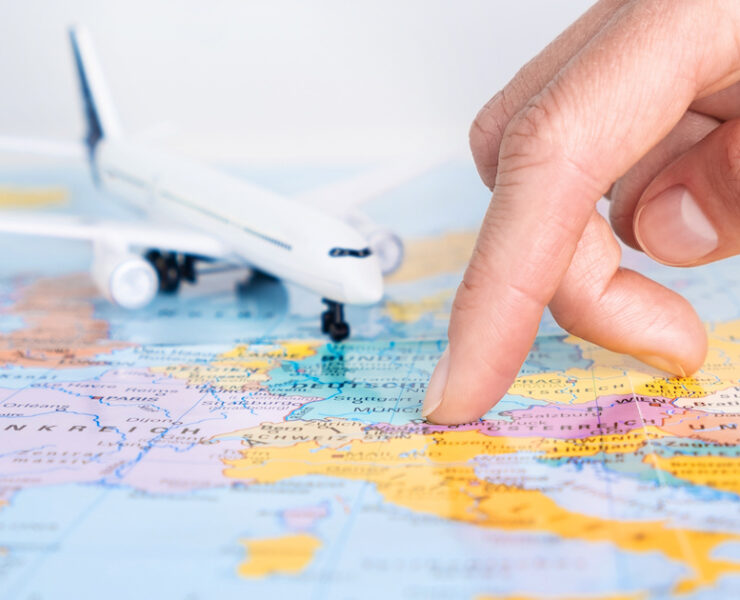
Travel, tourism global contribution to hit record $11.1tn in 2024: WTTC
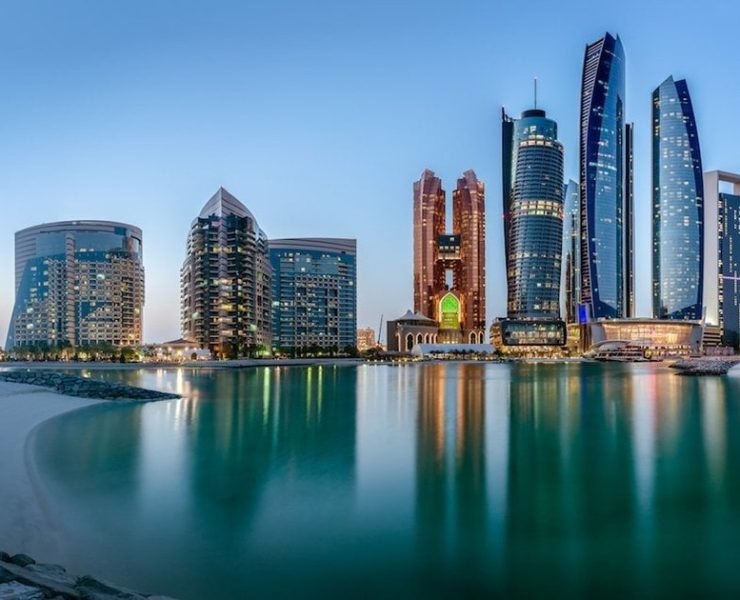
Abu Dhabi’s non-oil GDP expands over 9% in 2023
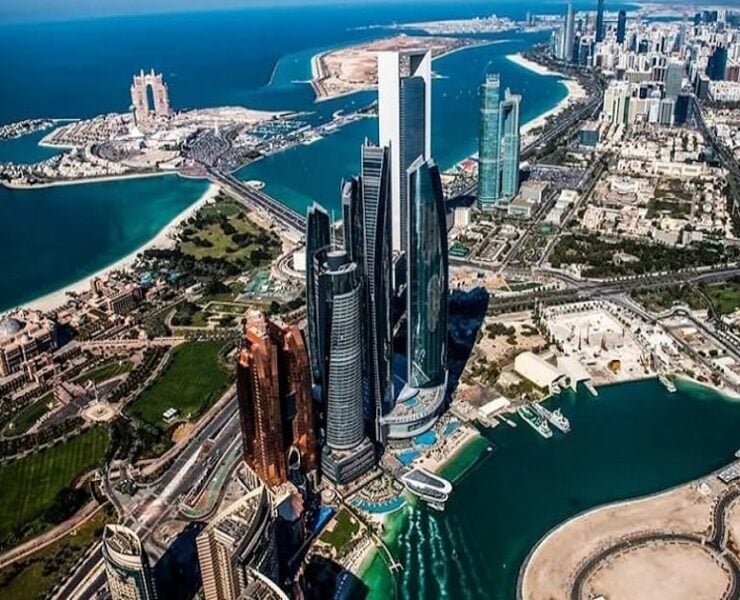
Abu Dhabi extends 10% tax waiver to boost events tourism

EFG Hermes reveals five must watch sectors for 2024
Aster dm healthcare separates gcc, india business, sells stake to fajr capital, blackberry reports profit on demand for cybersecurity services, uae announces new corporate tax registration deadlines: what businesses need to know, latest issue.
- Real Estate
- Special Report
- Art & Culture
Advertise With Us
Privacy policy.
© 2021 MOTIVATE MEDIA GROUP. ALL RIGHTS RESERVED.
Saudi Arabia launches its biggest travel campaign in China. Will Chinese tourists bite?
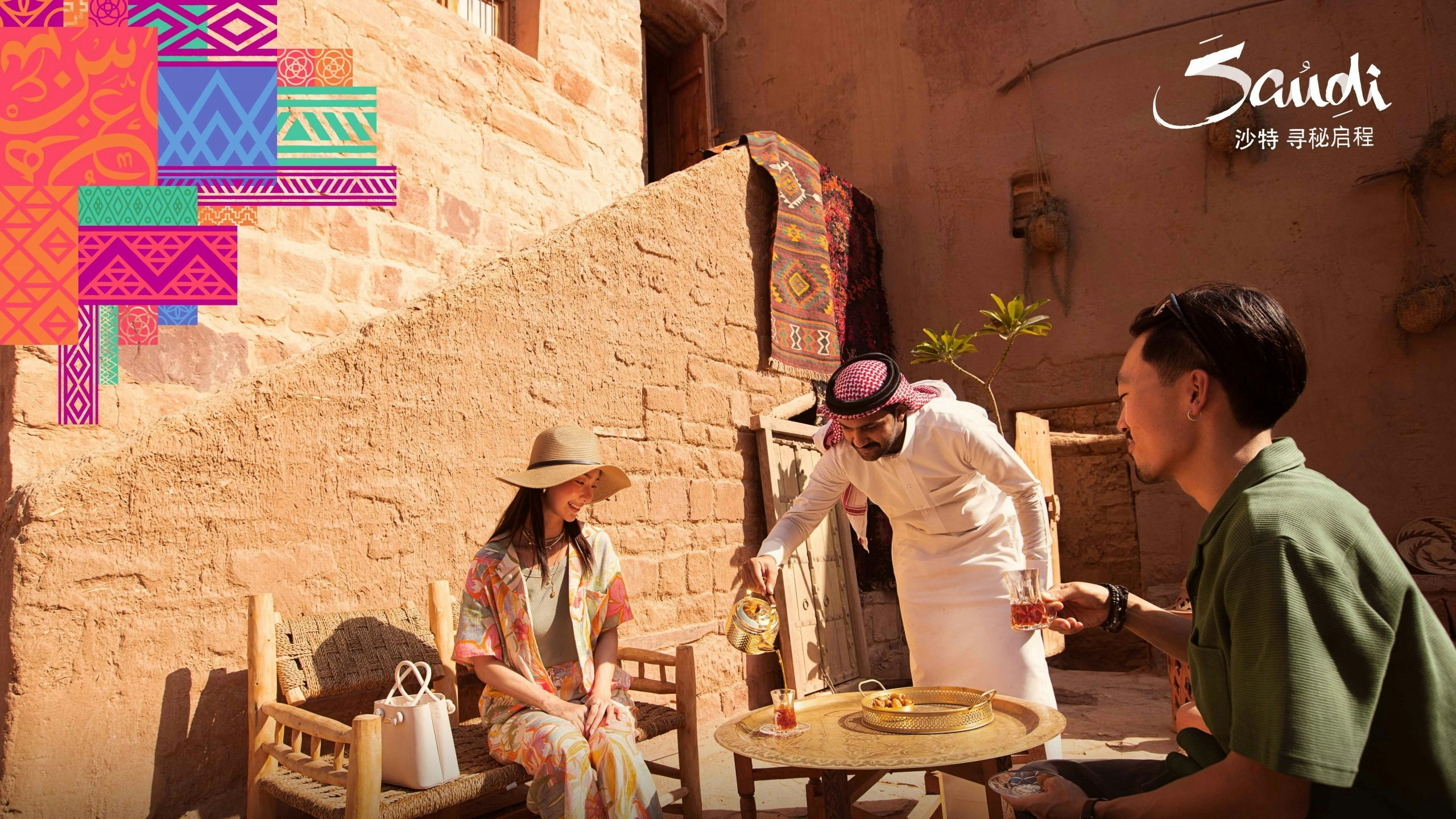
What happened
On November 17, the Saudi Tourism Authority (STA) landed in Shanghai to launch its biggest integrated travel campaign in China. Over 13,000 visitors flocked to the Bund to participate in the Saudi Souk Festival, a celebration of Saudi Arabia’s culture, heritage, and natural beauty, and enjoy live performances along the waterfront.
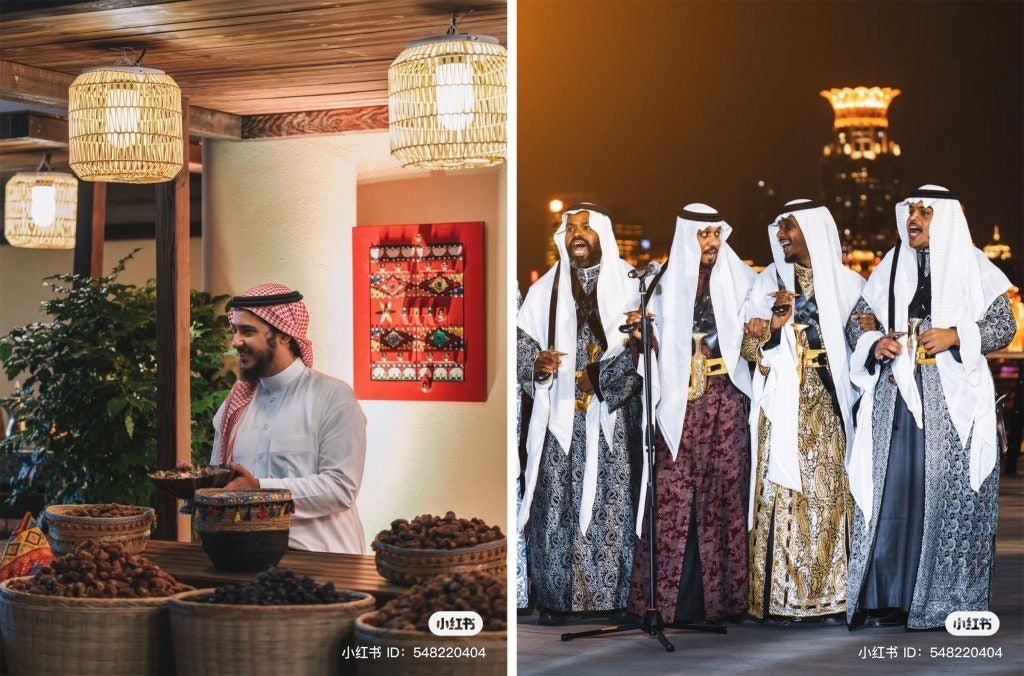
As part of the campaign, STA released a series of Saudi experience films on national TV and major tech platforms in China, such as Ctrip, Mafengwo, and Tencent, reaching hundreds of millions of viewers at home. The films give Chinese travelers a taste of what they can experience in Saudi Arabia, such as stargazing, snorkeling in the Red Sea, and riding in a hot-air balloon.
The STA also unveiled a series of how-to videos on its VisitSaudi.cn website to help Chinese audiences navigate Saudi Arabia with confidence, from wearing traditional attire to connecting to the internet at the airport.
“We are delighted to share the wonders of Saudi with our Chinese friends,” said Alhasan Aldabbagh, President of APAC Markets at the Saudi Tourism Authority. “We hope that this campaign will inspire them to discover our country … as well as foster a deeper understanding and appreciation of the similarities between our two cultures, and strengthen the bonds of friendship and cooperation between our two nations.”
The Jing Take
Indeed, there is a lot of synergy between China and Saudi Arabia. Building upon the Belt and Road Initiative, the two countries have been working to enhance connectivity through infrastructure development, commerce, and cultural exchanges. Travel plays a big role in this, with Saudi Arabia aiming to attract 3 million Chinese tourists annually by 2030 and generate 46 billion in tourism revenue in total.
So far, the kingdom has made steady progress toward this goal. In addition to achieving approved destination status (ADS) in September 2023, enabling Chinese citizens to enter the country through group tours, Saudi Arabia has rolled out key initiatives to facilitate movement: simplifying the visa process, offering integrated Chinese payment solutions, and launching more daily flights.
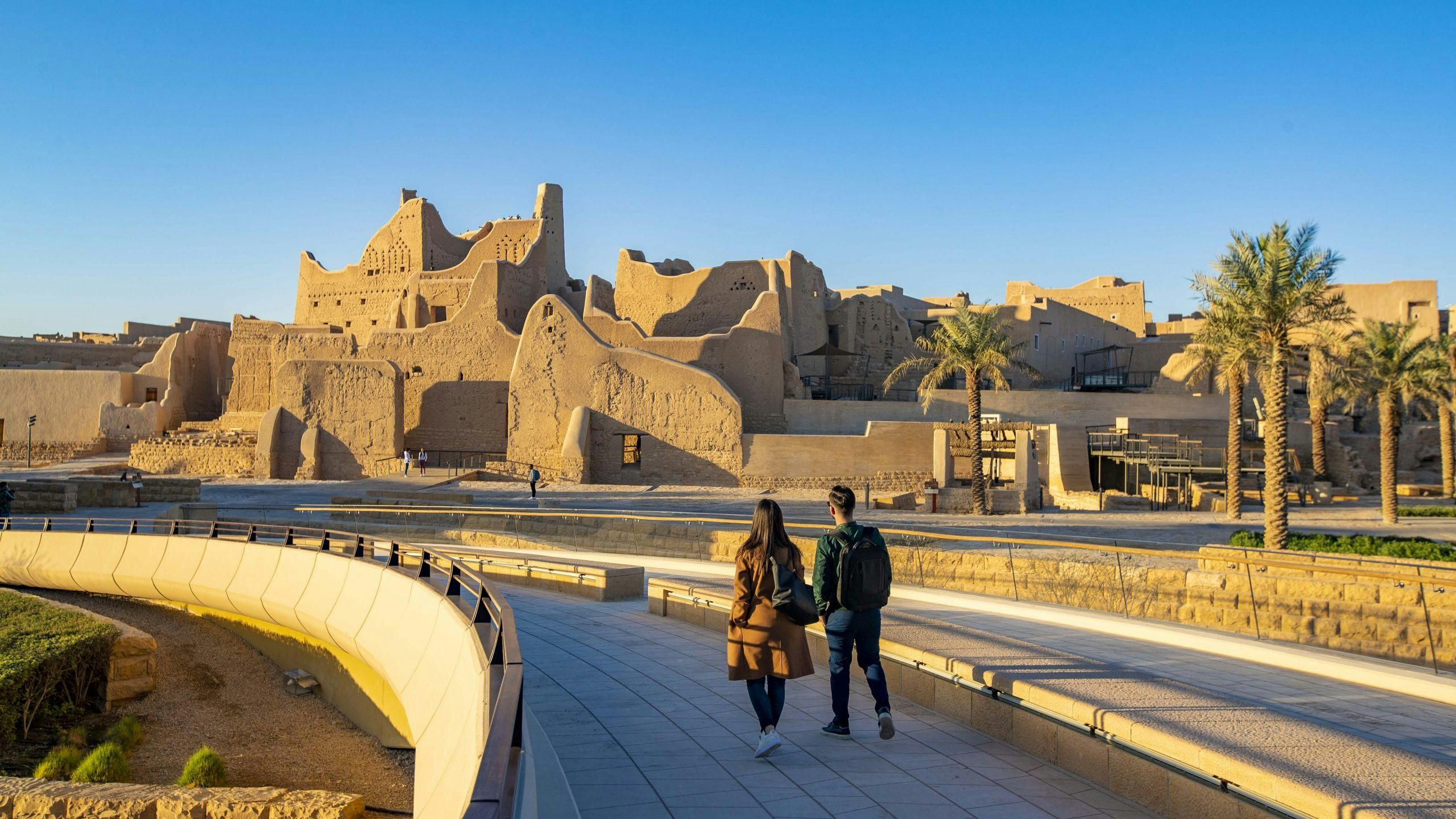
At the same time, Saudi Arabia has been garnering interest on Chinese social media. The country is featured on the latest season of a Chinese reality show called Divas Hit the Road (花儿与少年), where seven Chinese celebrities, including Dior ambassador Dilraba Dilmurat and Tory Burch ambassador Qin Lan, travel the world together on a tight budget. In the first few episodes, the group is seen trying local cuisine, karting in Boulevard Riyadh City, visiting Elephant Rock, and riding the Giant Swing in AlUla.
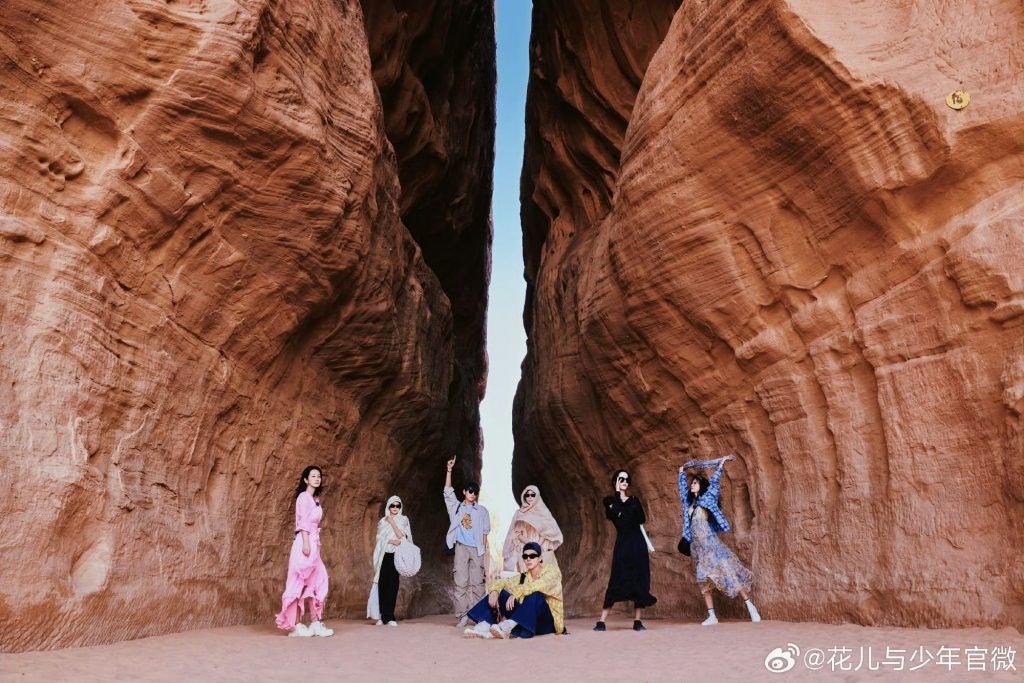
After the first episode aired on October 25, receiving 340 million views , there was a 772 percent increase in searches for “Saudi Arabia” month-on-month on online travel services provider Qunar. On Xiaohongshu, the hashtag “Divas Hit the Road Travel Guide” (#花少团旅行路书) has 15.9 million views, with netizens posting about their experiences copying the show’s itinerary. Meanwhile, the broader “Saudi Arabia” hashtag on Xiaohongshu has over 276 million views to date.
“Although the year is not over yet, my best destination has been decided: AlUla, Saudi Arabia!” wrote a Xiaohongshu user. “Before coming here, I had a stereotypical impression of Saudi Arabia; apart from wealth, it seemed to have nothing, and it was’'t considered a women-friendly country. However, after a five-day, four-night trip, I can't wait to recommend this hidden gem of a city to everyone around me.”
Clearly, Chinese tourists are adding emerging destinations to their bucket lists. And Saudi Arabia is ready to welcome them, all but rolling out the red carpet for their arrival.
The Jing Take reports on a piece of the leading news and presents our editorial team’s analysis of the key implications for the luxury industry. In the recurring column, we analyze everything from product drops and mergers to heated debate sprouting on Chinese social media.
Key Takeaways #
- On November 17, the Saudi Tourism Authority launched its largest ever integrated travel campaign in China, attracting over 13,000 visitors to experience Saudi culture and heritage in Shanghai.
- The STA released Saudi experience films on national TV and major tech platforms in China, showcasing activities like stargazing and snorkeling in the Red Sea. Additionally, how-to videos on VisitSaudi.cn were introduced to help Chinese travelers navigate Saudi Arabia comfortably.
- The popularity of Saudi Arabia on Chinese social media platforms surged after being featured on the travel reality show Divas Hit the Road . Tourism organizations can consider partnering with Chinese celebrities to broaden awareness, as Abu Dhabi did when it appointed actress Liu Yifei as a tourism ambassador.
- Many Chinese netizens get their travel inspiration from Xiaohongshu , tagging must-go spots as “打卡,” making the platform crucial for travel and hospitality brands.
- Young Chinese travelers are looking for remote and off-the-beaten-path destinations as well as simplified visa applications, making Saudi Arabia a strong market for China’s outbound tourism.
Saudi Arabia, China’s tourists and Sino-Saudi relations
Tourism is a pillar of Saudi Vision 2030, and China ranks very high globally as a source of tourists.
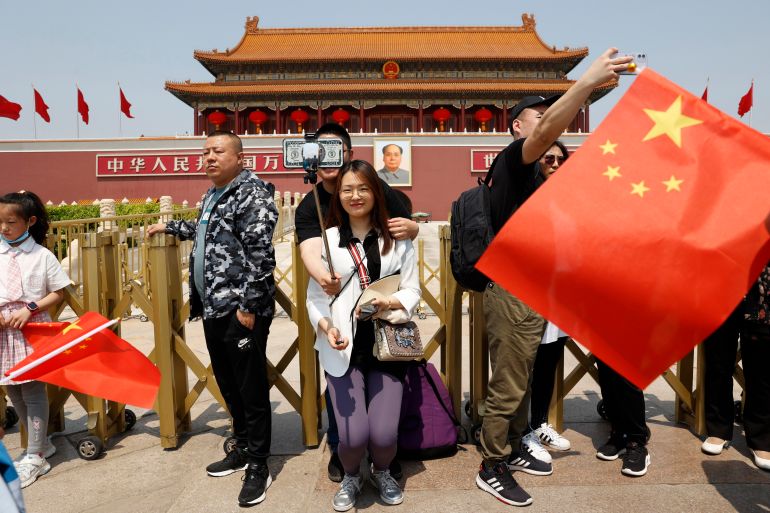
Saudi Arabia and China’s strengthening relationship is increasingly important to both Riyadh and Beijing as the kingdom pushes ahead with Vision 2030 and China with its Belt and Road Initiative (BRI). Saudi Arabia’s geoeconomic pivot to the East and China’s growing footprint in the kingdom’s economy highlight how bilateral ties have strengthened in recent years.
Synergies between Vision 2030, Saudi Arabia’s ambitious economic diversification agenda unveiled in 2016, and the BRI offer the potential to further connect the two countries in the years to come.
Keep reading
China has been spying from cuba for years, says us official, how will saudi arabia’s oil output cut affect prices, blinken starts saudi arabia visit aimed at steadying relations, saudi arabia privatises football clubs, eyes big-name signings.
Tourism is a pillar of Saudi Vision 2030, and China ranked number one globally as a source of tourists in 2019, with Chinese people making 155 million outbound trips and spending more than $250bn while vacationing outside of China. Because of the COVID pandemic, the numbers for 2020 and 2021 dropped down to 20 and 26 million tourists, respectively.
The Saudi government seeks to bring in an annual $46bn in tourism revenue by the end of this decade, and it can achieve much growth with more Chinese vacationers coming to Saudi Arabia. In 2019, just before the COVID pandemic caused Saudi Arabia’s tourism revenues to plummet, the kingdom’s receipts from this sector reached $19.85bn – the highest ever.
Growing together?
As China recovers from the major economic setbacks caused by the country’s stringent zero-COVID policies, Saudi Arabia is focused on tapping into its tourism market as the number of Chinese travelling overseas as tourists will naturally rise. In March, Saudi Tourism Authority CEO Fahd Hamidaddin met with China’s Vice Minister of Culture and Tourism Rao Quan to discuss launching joint tourism initiatives aimed at helping the kingdom attract nearly four million Chinese tourists a year by 2030.
Beijing sees Vision 2030’s success as extremely important to China’s own interests in the Middle East. If the kingdom’s economy fails to diversify beyond oil, there will be a devastating economic crash that could lead to new layers of instability in the region, threatening the BRI and China’s global trade ambitions that have the most to gain from lasting peace and stability on the Arabian Peninsula.
The Saudis are “determined to make tourism and entertainment their number two national industry after oil and energy. Chinese tourism is a potentially huge market for them,” Hussein Ibish, a senior resident scholar at the Arab Gulf States Institute in Washington (AGSIW), told Al Jazeera. “If they can tap into that vast potential, it will be another large step forward in moving beyond total reliance on hydrocarbons for foreign exchange and commerce.”

“Many of the Gulf’s tourism hubs are hoping to capitalise on a return of Chinese tourists after years of lockdown in China,” Robert Mogielnicki, a senior resident scholar at AGSIW, told Al Jazeera.
As Saudi Arabia works to make itself one of those hubs, Ibish added, “There are many possible reasons for Chinese tourists to make the trip, even just to experience a radically different culture and environment to their own.”
As Ibish explained, the kingdom has three main attractions that could bring in many tourists. First, ancient Saudi sites such as the oasis city of al-Ula in Medina province have some of the oldest relics and monuments on Earth. Second, Saudi Arabia’s Red Sea coast, mountains and rock landscapes have a natural beauty that would appeal to tourists. Third, as the Saudi economy diversifies, there is a growing entertainment sector offering concerts, cultural fairs, sports events, car shows, and so on while Neom – a planned megacity in northwestern Saudi Arabia, which is supposed to house up to 2 million people by 2030 – can potentially lure many tourists to the kingdom.
According to Ahmed Aboudouh, nonresident fellow with the Middle East Programs at the Atlantic Council, Saudi Arabia seems to have studied Japan’s national tourism strategy and Australia’s China 2020 Strategic Plan very closely.
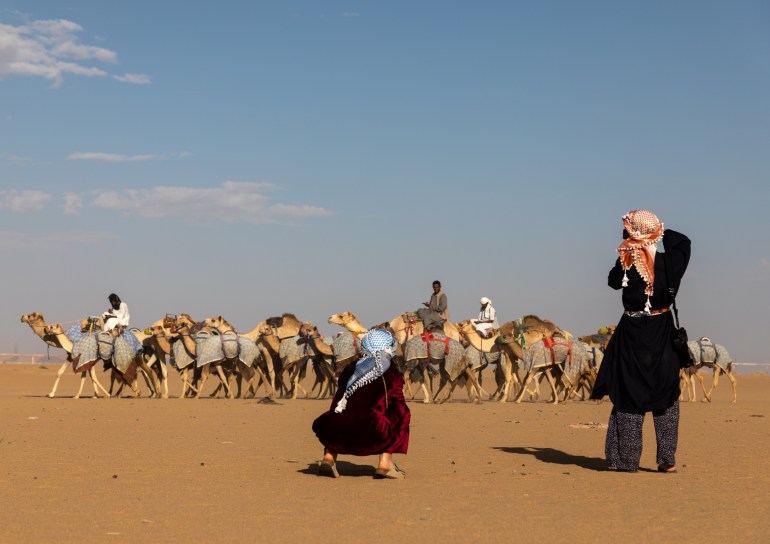
These plans include “relaxing visa policies, improving air links, upgrading travel services and other targeted approaches, including utilising traditional Chinese media and popular social media platforms to promote Saudi destinations and rolling out technological payment solutions”, Aboudouh said.
“Chinese tourists’ spending power will not only supply the local market and create jobs in Saudi Arabia but will also consolidate supply chains between China and the Gulf and boost the aviation industry in the region. In addition to [their] vast potential to support Saudi plans to diversify the economy … Chinese tourists are a crucial component in the cultural exchange leg of the Comprehensive Strategic Partnership between the two,” he added.
Regional and international competition
There is much to say about competition for Chinese tourists. If Saudi Arabia attracts more, it could undermine the number of Chinese tourists fellow Gulf states and European countries are attracting so far.
“There is definitely regional competition for tourists,” explained Mogielnicki. “[T]here will be winners and losers when it comes to the top Chinese tourism destinations in the Gulf.”
Aboudouh told Al Jazeera that the kingdom’s incentives for Chinese tourism may trigger competition with neighbouring Oman and the UAE, which will “manifest in more incentives, travel offers, and regulations aimed at empowering local travel agencies and deals with the Chinese travel market”.

Within the Gulf Cooperation Council (GCC), intensified competition for Chinese tourists could put Beijing in a challenging position in terms of its “hedging” strategy aimed at balancing Beijing’s good relations with all Gulf countries by avoiding moving too close to any one country. Therefore, Aboudouh expects to see a “balanced outbound Chinese tourism policy to the famous Gulf destinations and a focus on utilising the BRI and Global Development Initiative to avoid alienating any of China’s Gulf partners in the region”.
But experts believe that this will not inevitably be a zero-sum game of competition for the Gulf nations. Rail and visa schemes could serve to increase connectivity between Saudi Arabia and the other five GCC member states, which “may allow Gulf countries to spread the incoming tourism wealth around the region in a way that was more difficult to do in the past”, according to Mogielnicki.
Tourism’s importance to Sino-Saudi relations
Most discussions about the kingdom’s multidimensional relationship with China do not concern tourism, which is not the most important aspect of ties between the two nations. The most important aspects of Sino-Saudi relations appear to be oil, trade, and sensitive technology.
Yet, growing tourism links will do much to deepen Sino-Saudi relations in ways that go beyond economics. “The tourism angle helps to fill out the various contours of this expanding relationship,” Mogielnicki told Al Jazeera.
“Greater tourism flows from China to Saudi Arabia will likewise have a social and cultural impact in the kingdom.”
As Ibish explained, expanded Sino-Saudi tourism ties “would go a long way to strengthening the Saudi economic transition and promoting people-to-people exchange and understanding, which can be the bedrock for other aspects of a stronger partnership.”
Regenerative tourism is the new gold standard for resort development. This destination on the Red Sea is leading the way.
- A development organization in Saudi Arabia is changing perceptions of how regenerative tourism can work.
- From planting millions of trees to protecting endangered turtle species, these projects will protect and improve the local environments.
- The creation of thousands of jobs in the community is accompanied by dedicated training and development programs for young Saudis.
When John Pagano arrived in Saudi Arabia in 2018, the country subverted his expectations. "We all paint a picture in our minds of what the Middle East is about," he said. "I found a pristine environment, an archipelago of 90 beautiful islands, and turquoise-colored water. It was truly remarkable."
Pagano, who is Canadian, was moving to the Kingdom to take up a role as chief executive officer of Red Sea Global (RSG), a major new developer of ambitious regenerative tourism destinations. Pagano, an engineer by training, has had a long career working on large-scale real estate projects, including the Canary Wharf development in London and the Baha Mar project in the Bahamas. But this was unlike anything he had done before in its sheer scale. "I was persuaded by His Royal Highness and his vision for transforming the country," he said. "I had the opportunity to be part of it."
As construction progresses, change is in the air
Progress has been rapid. When Pagano joined RSG six years ago, he was the company's 15th employee. Today, RSG employs around 5,000 people. RSG's portfolio includes two coastal destinations: The Red Sea and AMAALA. The first resorts at The Red Sea are already open, with luxury hospitality brands Six Senses and St Regis already welcoming guest, with the Ritz-Carlton Reserve joining imminently. By 2030 the destination will be home to 50 hotels, 8,000 rooms and up to 1,000 residential properties, as well as entertainment and leisure facilities. AMAALA, meanwhile, will be home to more than 3,900 hotel rooms across 29 hotels, and 1,200 luxury residential homes, alongside high-end retail establishments, fine dining, and wellness facilities. A third destination, Thuwal Private Retreat, is a buy-out-only resort set to open this year.
Given how remote the three sites are, construction involves building wider infrastructure around the destinations: airports, roads, villages for workers to live in. All of this is done with the company's regenerative ethos in mind: the airport, for instance, aims to be the first in the Middle East to be fully carbon-neutral. "Historically, companies in the region do large-scale developments using third parties," Pagano said. He took a different course: Building a vertically-integrated real estate company to deliver The Red Sea.
Central to RSG's work is the idea of regenerative tourism, which seeks to actively improve the local environment and economy, rather than simply avoiding harm, and to involve local communities in decision making. "Sustainability is about maintaining the status quo, and we're past that that particular point — the world is facing an environmental and ecological crisis," Pagano said. The Red Sea will be the largest destination in the world powered exclusively by renewable energy, 24 hours a day, and RSG has already installed all 760,000 panels needed to power phase one of the destination by sunlight, day and night.
In fact, RSG plans a 30% net conservation benefit by 2040, an aim which will be achieved by enhancing the area's habitats. To this end, the company plans to grow 50 million mangrove trees — 1 million of which have already been planted by RSG — to protect against erosion and sequester carbon effectively. Saudi Arabia's Red Sea coast is home to one of the world's few thriving coral reefs, but rather than simply trying to protect what is there, in partnership with King Abdullah University of Science and Technology (KAUST), RSG is working on coral regrowth. "We're not complacent — corals are under serious threat from climate change, and we want to build resilience and abundance," Pagano said.
Also working with KAUST, the company has conducted a marine spatial exercise on the local environment, and used this to determine which islands in the archipelago would be developed. One island, which appeared perfect for development, was found to be a nesting environment for the critically endangered Hawksbill Sea Turtle. "Our decision was that the sea turtles were there first, and they get to stay," Pagano said.
Embedding opportunity at the heart of the development
A central plank of regenerative tourism is growing local economies, and RSG is focused on fostering Saudi talent. Across its two larger destinations, The Red Sea and AMAALA, RSG is creating 120,000 new jobs, directly and indirectly. The Elite Graduate Program, which launched in 2020, is particularly close to Pagano's heart. "I've been really fortunate in my career to work on these large transformational projects, each of which was life-changing for me, and I wanted to give that same opportunity to young Saudis."
Graduates — 250 so far — learn on the job and move around different departments. Of these, 30 have advanced to management-level positions and 70 have joined a leadership development program. In addition, RSG has awarded 170 scholarships to study Hospitality at the University of Prince Mugrin, provided internships and vocational training to 800 Saudis, and cofounded a farmer's co-op to improve income for local farmers.
RSG also runs a large-scale vocational training program, which works to upskill young Saudis across the spectrum of tourism jobs, from hospitality, to renewable energy and airport security, and guarantees jobs either directly with RSG or with its partners. Around 70% of the total value of contracts awarded by RSG has gone to Saudi-registered vendors. "We're making sure that [local communities] benefit," Pagano said.
This ambition supports Saudi Arabia's Vision 2030 strategy, which aims to diversify the country's economy and foster global engagement. Tourism has already shot up as a share of the Kingdom's GDP, from 3% in 2018 to 7% today. Previously, almost all Saudi Arabia's tourists were visiting religious sites. Destinations like The Red Sea and AMAALA aim to build a broader, more leisure-focused tourism sector.
Pagano wants others to experience the pleasant surprise he did experiencing the country for the first time. "Tourism is a bridge between cultures, and it's going to give the world a better appreciation of what Saudi Arabia is," he said. "We're helping the Kingdom open its doors to the wider world."
Learn more about regenerative tourism.
This article was created by Insider Studios with Red Sea Global .
- Main content
This is a short description about myself and what this site is about. I hope you enjoy being here!
Saudi tourism authority signs agreement to become ‘global travel partner’ at wtm london.
In Press Releases , WTM London .
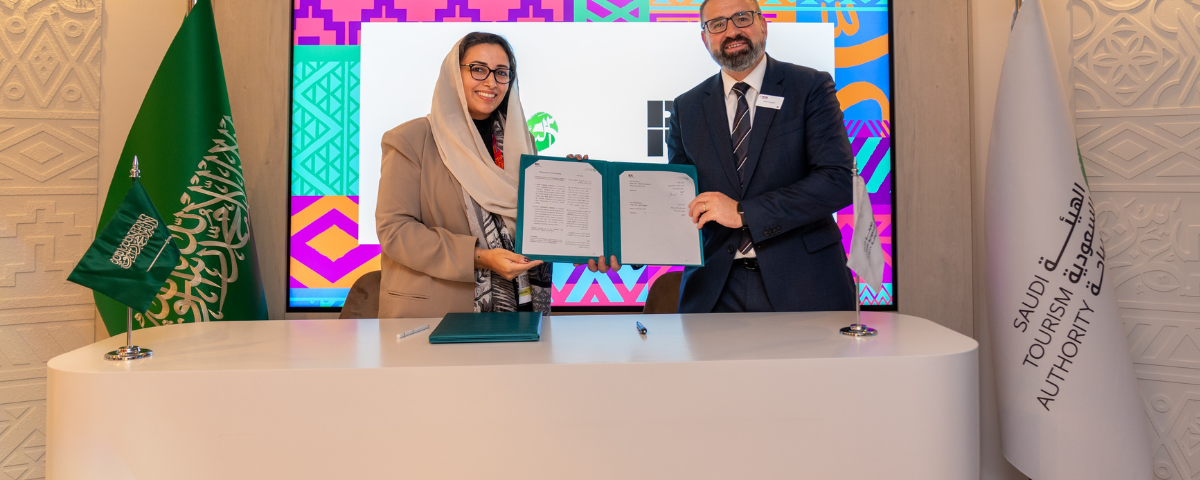
- Saudi Tourism Authority (STA) signed an agreement to collaborate with RX Global, the organizer of WTM, on a two-year partnership for the World Travel Market (WTM) Portfolio.
- The collaboration will span the entirety of the WTM portfolio of tradeshows – WTM London, WTM Africa, WTM Latin America and Arabian Travel Market (ATM).
- It is the third consecutive year STA has been a key WTM partner, with STA featuring as the ‘Premier Partner’ at World Travel Market London 2021 & 2022.
With Saudi Arabia being the world’s fastest growing new year-round tourism destination, STA has announced it will enter into a major new partnership with RX Global – following a formal signing after WTM London – which will see STA become the first-ever ‘Global Travel Partner’ of the World Travel Market (WTM) tradeshow events.
The two-year partnership, which is scheduled to run from November 2023 – September 2025 and is designed to cover the global remit of the WTM brand (including WTM London, WTM Africa, WTM Latin America and Arabian Travel Market), was announced on 8 th November 2023, at the closing day of World Travel Market London.
The agreement to partner was reached on the Saudi stand between the STA and RX Global on the final day at this year’s WTM, where the STA has led the largest-ever Saudi tourism delegation, with over 75 stakeholders in attendance – a 48% increase from last year.
The STA stand this year brings to life the diverse and dynamic offering of what visitors can experience in the authentic home of Arabia, and the scale of progress of the most ambitious transformation in the world.
The STA level of attendance and participation truly demonstrates the significance of WTM 2023 in charting the future of the global tourism sector’s growth.
Fahd Hamidaddin , CEO and Member of the Board at Saudi Tourism Authority said:
“Saudi is the world’s fastest-growing tourism destination, outperforming every expectation and setting the pace globally. Thanks to Saudi’s tourism leadership, each year our presence at WTM London continues to grow, and we are welcoming more visitors than ever, well on track to reach our targets for 2030.
“This partnership will highlight Saudi’s progress at WTM London and inspire more visits to Saudi through a series of engaging promotional activities at WTM events. Trade shows form a key part of our strategy of engaging with international trade partners – making the WTM sponsorship a perfect partnership for growth.
“I look forward to meeting old friends and new partners from around the world across all the WTM shows in 2023, 2024 and beyond.”
Vasyl Zhygalo , WTM Portfolio Director said:
“We’re pleased to welcome Saudi as the first ever WTM Global Travel Partner, building on the successes of the partnership with WTM London in 2021 and 2022. Saudi has ambitious targets to grow its tourism sector and our shows offer an unparalleled opportunity for Saudi to share its diverse range of tourism offerings and investment opportunities with key trade buyers and media from around the world.”
The collaboration is scheduled to include new promotional activities to inspire visits to Saudi Arabia. The STA CEO, Fahd Hamidaddin delivered a keynote speech at WTM London as well as opening remarks on the main Elevate stage. There was also an interactive and immersive stand, a specially-curated ‘Experience Saudi’ marketing campaign, digital screens in the WTM London Boulevard and a sand/sea scape on the boulevard floor that really brought Saudi Arabia’s brand to life.
Trade show attendance has been a key part of STA’s strategy since it opened its doors to international visitors in 2019. At WTM trade shows over the past few years, STA has secured a record number of deals and agreements with key international trade partners, and demonstrated STA’s commitment towards the success of the global tourism ecosystem.
Find out more about the STA’s latest news and what’s on at WTM London 2023:
- Saudi Tourism Authority
- WTM London Conference Program
Share this:
Leave a comment cancel reply.
Your email address will not be published. Required fields are marked *

Saudi hints at welcoming LGBTQ+ tourists in updated website
Only time can say if members of the lgbtqa+ community are willing to travel to the arabian country where homosexual activities can cost them their lives, as per government rules..

The website of the Saudi Tourism Authority (STA), in its updated Q&A section, when asked, “Are LGBT visitors welcome to visit Saudi Arabia?” stated that everybody is welcome to the kingdom.
According to a report by the CNN , the response to one of the FAQs was, “Everyone is welcome to visit Saudi, provided that they follow and respect our culture, traditions and laws, as you would when you visit any other country in the world. Like other governments, we do not ask visitors personal questions and we respect the right to privacy.”
Details of the update are still not clear. CNN reported that the older version of the website till March 14 neither had the question nor the answer.

However, only time can say if members of the LGBTQA+ community are willing to travel to the Arabian country where homosexual activities can cost them their lives, as per government rules.
“Research shows they spend more money in a destination than heterosexual couples, and tend to travel more times a year,” according to Darren Burn, CEO of Out Of Office , a luxury travel planning service for the LGBTQA+ community was quoted by CNN .
“But my concern is what the reality is like in the destination. Are they saying that a same-sex couple can check into a hotel and get a double bed without any issues? My hunch would be that that’s not the reality,” Burn further added.
A look at the Saudi Arabia website indicates that the country is aiming to expand its tourism sector. According to human rights researcher Nora Noralla, Saudi is trying to ape Dubai and Qatar in a bid to generate revenue.
“In Dubai, there are a lot of gay influencers, and as long as you understand the context of the area you’re in and respect the traditional culture and not show your queerness in any way, you’re OK,” she told CNN .
Burn said that opening the doors to the LGBTQA+ community would help change mindsets that have been ruled by million years of religious traditionalistic values.
“Without travel and tourists coming to the destinations, mindsets would never change – as long as they can do so safely, LGBTQ+ travelers can break down barriers,” he said.
Get the news updates on WhatsApp & Telegram by subscribing to our channels. For all the latest Middle East updates, download our app Android and iOS .

We've detected unusual activity from your computer network
To continue, please click the box below to let us know you're not a robot.
Why did this happen?
Please make sure your browser supports JavaScript and cookies and that you are not blocking them from loading. For more information you can review our Terms of Service and Cookie Policy .
For inquiries related to this message please contact our support team and provide the reference ID below.
- Latest News
- Emergencies
- Ask the Law
- GN Fun Drive
- Visa+Immigration
- Phone+Internet
- Reader Queries
- Safety+Security
- Banking & Insurance
- Dubai Airshow
- Corporate Tax
- Top Destinations
- Corporate News
- Electronics
- Home and Kitchen
- Consumables
- Saving and Investment
- Budget Living
- Expert Columns
- Community Tips
- Cryptocurrency
- Cooking and Cuisines
- Guide to Cooking
- Art & People
- Friday Partner
- Daily Crossword
- Word Search
- Philippines
- Australia-New Zealand
- Corrections
- From the Editors
- Special Reports
- Pregnancy & Baby
- Learning & Play
- Child Health
- For Mums & Dads
- UAE Success Stories
- Live the Luxury
- Culture and History
- Staying Connected
- Entertainment
- Live Scores
- Point Table
- Top Scorers
- Photos & Videos
- Course Reviews
- Learn to Play
- South Indian
- Arab Celebs
- Health+Fitness
- Gitex Global 2023
- Best Of Bollywood
- Special Features
- Investing in the Future
- Know Plan Go
- Gratuity Calculator
- Notifications
- Prayer Times
Saudi Arabia launches Eid drive for safe holiday
Motorists urged to observe safety rules before hitting the road
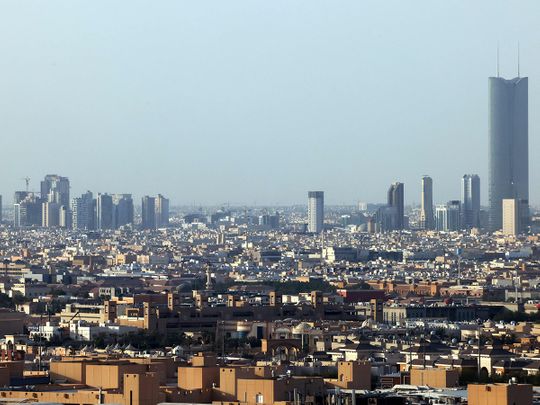
Cairo: As the Eid Al Fitr holiday is approaching, road authorities in Saudi Arabia have launched an awareness campaign to promote safety and precautions against potential accidents.
The “Safe Holiday” drive was launched by the government General Authority for Roads in conjunction with a ministerial committee for traffic safety ahead of Eid Al Fitr, which marks the end of the Muslim holy month of Ramadan.
The three-day festival is expected to begin on Wednesday, depending on sighting the new moon. Travel rates usually peak during the holiday.
In a safety advisory, the General Authority for Roads stressed the importance of fastening the seat belts for the driver and other riders, observing the speed limit and avoiding the use of the mobile phone at the wheel. The car must also be fitted with all safety tools.
Motorists are urged to sleep enough before hitting the road and advised against driving in the rain. Placing children in their designated seats during the journey is important too.
Traffic accidents increase by around 15 per cent during holidays compared to the rest of the year, according to the authority.
More From Saudi

Watch: Laylat Al Qadr draws millions to Grand Mosque
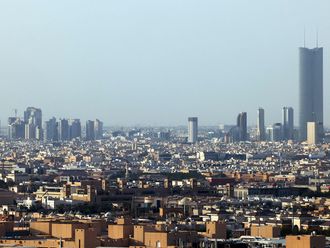
Saudi Arabia revises domestic labour contract rules
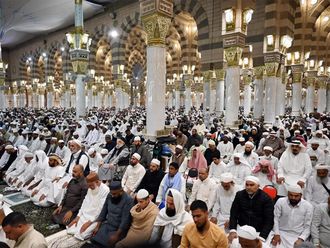
Prophet’s Mosque receives over 20m in Ramadan

Saudi films to tour 5 countries
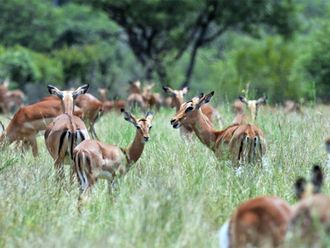
Wildlife on the menu: South Africa's conservation plan
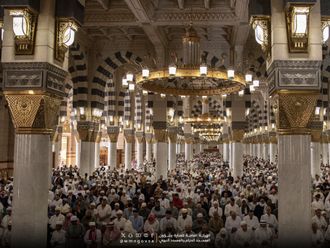
Muslims performing Itikaf to get medical care, food

Dozens of violations at Saudi hospitality facilities

Saudi Arabia: 648 held for passenger pickup at airports
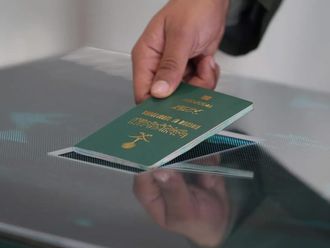
E-gates introduced at King Khalid airport in Riyadh
Activist greta thunberg detained at dutch protest, russia evacuates over 4,000 people after dam burst, another indian student dies in us, probe underway, world's oldest man reveals secret to his longevity.

Get Breaking News Alerts From Gulf News
We’ll send you latest news updates through the day. You can manage them any time by clicking on the notification icon.

The UAE’s Next Big Luxury Travel Destination
Raki phillips, ceo of ras al khaimah tourism development authority, talks about the hospitality boom in the middle east—and the evolution of ras al khaimah into a luxury travel destination..
- Copy Link copied

The Hilton Ras Al Khaimah Beach Resort
Courtesy of Hilton Ras Al Khaimah Beach Resort
Without a doubt, the Middle East is one of the world’s fastest-evolving regions for hospitality development, with $1.9 trillion pouring into such destinations as the United Arab Emirates, Saudi Arabia, and Egypt. Few people have a front-row seat to the future of tourism in the region like Raki Phillips, CEO of Ras Al Khaimah Tourism Development Authority (RAKTDA) in the UAE. Ras Al Khaimah (RAK), the country’s sixth-largest city.
During more than two decades of working with hotel brands including Ritz-Carlton and Fairmont Raffles Hotels International, Phillips has seen tremendous change in the Middle East’s hospitality scene. His role as CEO of RAKTDA, which he’s held since 2019, includes destination marketing with a focus on holistic growth strategies that prioritize sustainability, community engagement, and cultural authenticity.
Under Phillips’ guidance, Ras Al Khaimah, a 45-minute drive from Dubai, has grown from a small fishing village to a premier tourist destination in its own right, thanks in large part to such notable new resorts as Anantara Mina Al Arab and the refurbishment of the Waldorf Astoria Ras Al Khaimah . Future projects set to further elevate the destination’s profile include a Wynn resort, a Nobu hotel and restaurant, and Marriott’s design-driven W hotel brand , which is in the middle of a renaissance.
AFAR caught up with Phillips to talk about redefining Ras Al Khaimah’s hospitality landscape, wider plans for the Middle East and Africa, and the challenges and opportunities in travel that lie ahead.
This interview was edited for clarity and space.

Raki Phillips is the CEO of Ras Al Khaimah Tourism Development Authority.
Courtesy of Ras Al Khaimah Tourism Development Authority
Describe your role with Ras Al Khaimah Tourism Development Authority.
Together with my team, we orchestrate the growth of Ras Al Khaimah’s tourism infrastructure and sustainability investments. Our overarching vision is to transform the emirate into a destination of the future, aiming to elevate its tourism contribution from 5 percent to one-third of its economy by 2030, attracting over 3.5 million visitors.
My responsibilities include a range of activities, from overseeing infrastructure and project development to negotiating international partnerships aimed at boosting inbound passenger traffic. I am particularly proud of our achievements in securing significant investments, such as the $3.9 billion (USD) deal with Wynn Resorts to develop a 1,500-plus-room integrated resort on Al Marjan Island.
Can you tell us about the new hotel openings in RAK?
Ras Al Khaimah is the fastest-growing tourism destination in the region. Our emirate has luxurious beachfront resorts, charming glamping options, and serene desert and mountain retreats. Currently, we have an impressive portfolio of 50 properties, with more than 8,000 rooms available for guests, and an additional 7,000 plus hotel rooms in development.
Our hospitality offering includes globally recognized brands such as Waldorf Astoria, Hilton, InterContinental, Ritz-Carlton, and Mövenpick. Recent openings like the Anantara Mina Al Arab Ras Al Khaimah Resort, offering ultra-luxurious Maldivian-style overwater villas, have been met with enthusiasm, and we have several exciting new projects in the pipeline, including Sofitel, Westin, Rove, Nobu, JW Marriott, W Hotels, and Nikki Beach. One of our most anticipated developments is the Wynn Al Marjan Island, set to debut in 2027 with more than 1,500 guest rooms, suites, and villas.
What sets us apart is not just our accommodation options, but also the diverse dining scene across our hotel portfolio, which ranges from traditional to contemporary cuisine. These include Umi, a theatrical showcase of Japanese food at the Waldorf Astoria, and Farmhouse, a farm-to-table concept located in a natural oasis on the grounds of the Ritz-Carlton Ras Al Khaimah, Al Wadi Desert.

The Waldorf Astoria Ras Al Khaimah
Courtesy of Waldorf Astoria Ras Al Khaimah
What are your thoughts on the future of hotels and hospitality in the Middle East?
The year 2024 will be a transformative one for the Middle East hospitality sector as it adapts to new trends and shifts in consumer behavior—a year marked by technology, sustainability commitments, personalization, authenticity, and wellness.
From contactless check-ins to AI-powered room service and personalized digital concierge services, hotels are leveraging technology to enhance customer service and operational efficiency. Virtual reality tours and mobile apps for room control are becoming popular, offering guests a seamless and personalized experience.
Sustainability is another critical aspect influencing the future of hospitality in this region. As consumers become more environmentally conscious, hotels are implementing green initiatives such as waste-reduction programs, renewable energy usage, and sourcing local produce. The emphasis on sustainability is also reflected in the design and construction of new hotels, with eco-friendly materials and technologies being increasingly adopted. Aligning with global standards, we are proud to be the first EarthCheck-certified destination in the Middle East.
We are seeing a rise in momentum in Mideast hospitality—why do you think the region is breaking ground these days?
In the past few years, there has been a concerted effort by Middle East countries to promote tourism on a global scale via a mix of strategies, including creative marketing campaigns and hosting international events. As we have seen from Dubai Expo 2020 and 2022 FIFA World Cup in Qatar, such global events have become catalysts for driving tourism and hospitality growth in the region.
The Middle East is seeing a growing number of high-net-worth visitors and luxury travelers from all over the world. There is a strong demand for premium hospitality experiences, including luxury resorts, high-end dining, and exclusive entertainment.
Moreover, the region’s strategic location between Europe, Asia, and Africa makes it a geographically convenient hub for international travel and transit. Countries like the UAE have positioned themselves as global aviation and transportation hubs, attracting travelers from around the world and therefore increasing the demand for hospitality services. With a growing network powered by partnerships with leading airlines, and an extensive array of hospitality and hotel offerings, Ras Al Khaimah’s unconventional experiences help position it as one of the fastest-growing destinations in the region.

Suwaidi Pearl Farm is located in the fishing village of Al Rams.
How would you define Arabian hospitality?
Arabian hospitality is a cherished cultural tradition deeply rooted in valuing the well-being and comfort of guests, ensuring they feel welcomed, respected, and cherished. It epitomizes the generosity and kindness inherent in Arab societies, fostering tightly knit communities and shaping meaningful interactions. In Ras Al Khaimah, we prioritize creating enriching cultural exchanges for guests by offering diverse experiences deeply intertwined with local traditions and heritage.
Ras Al Khaimah’s rich history spanning 7,000 years reflects the authentic Arabian identity and hospitality of the destination. For instance, visitors can experience an immersive journey to Suwaidi Pearls, the only pearl farm in the UAE, where they discover the fascinating history of pearl diving and witness live oyster-opening demonstrations.
Could you share an anecdote or career highlight?
Reflecting on some of my career highlights, the journey of achieving a record-breaking annual visitor count of 1.22 million in 2023 in Ras Al Khaimah stands out. This milestone symbolized the collective dedication, resilience, and hard work of our entire team and the broader Ras Al Khaimah tourism community, showcasing our agility and collective resolve to enhance our destination offering in ways that deeply resonate with our visitors.
Leading a diverse and talented multicultural workforce of 80 employees from 24 countries, I am proud that RAKTDA was honored as one of the top places to work in the Middle East for the third consecutive year, and we ranked fourth in Best Workplaces in the Public Sector in 2023. Being recognized affirmed our commitment not just to our external stakeholders and visitors but equally to our internal team, whose well-being and satisfaction are paramount to our success.
Equally significant was securing the $3.9 billion deal with Wynn Resorts—the largest-of-its-kind foreign direct investment in the region. This collaborative achievement was not just a win for RAKTDA but for the entire Emirate, marking a significant milestone in our journey toward economic diversification and sustainable tourism development. It exemplified our ability to work synergistically toward a common vision, attracting world-class investments that contribute to the emirate’s growth and global standing.

Anantara Mina Al Arab Ras Al Khaimah Resort is surrounded by mangroves.
Courtesy of Anantara Mina Al Arab Ras Al Khaimah Resort
It’s National Arab American Heritage Month in the United States. How has your Arab American identity influenced your career?
Growing up as an Arab American, with a Lebanese Argentinian mother and an American father, I was immersed in a rich tapestry of cultural experiences from an early age. Be it through food culture, celebrating both Thanksgiving and Eid, or by traveling a lot with my family, my upbringing was a vibrant blend of traditions that spanned continents. This multinational background, coupled with the privilege of growing up in Orlando and attending high school in Kuwait, exposed me to the world’s diversity and the universal values of hospitality and connection. It was this exposure to different cultures and traditions that honed my appreciation for hospitality and travel, which has been instrumental in my career.
My journey to Ras Al Khaimah was not just a professional decision, but also a personal calling. Drawing on my diverse heritage, I saw in Ras Al Khaimah a reflection of the values I hold dear: a deep respect for heritage and a forward-looking vision for innovation and growth. The UAE, known globally as a beacon for exceptional hospitality, felt like the perfect place to continue my journey, offering a unique blend of tradition and modernity that resonated with my own multicultural identity.
My decision to lead RAKTDA was inspired by my lifelong exposure to different cultures and the desire to bring to light the emirate’s rich culture, breathtaking landscapes, and warm hospitality. It was here, in Ras Al Khaimah, that I found a destination that echoes my personal journey of bridging worlds, celebrating diversity, and creating connections. This journey, from the multicultural celebrations of my childhood to the strategic vision for RAKTDA, has been fueled by the belief in the power of travel to unite us across cultures and borders.
Tell us what you love about travel and hospitality—and what you would like to improve?
What I love most about travel and hospitality is the power it has to connect people, bridge cultural divides, and foster understanding and appreciation for the diversity of our world. Travel opens our minds to new ideas, challenges our perceptions, and enriches our lives in countless ways. In the realm of hospitality, the opportunity to create moments of joy and comfort for others is deeply rewarding.
However, one area I believe the industry can improve is in sustainability. As we move forward, it’s imperative that we adopt more sustainable practices to protect the destinations we cherish for future generations. This means minimizing our environmental impact and ensuring that tourism benefits local communities and preserves cultural heritage.


IMAGES
COMMENTS
The latest tweets from @visitsaudi
Saudi Underlines Commitment to Travel Trade Bringing its largest Everdestination Offering to World Travel Market. Saudi tourism's largest delegation, with over 75 influential Saudi stakeholders from key Saudi destinations, will be participating in the World Travel Market (WTM) London from November 6 to 8, this marks a staggering 48% increase compared to the previous year.
The CEO of Saudi Tourism Authority shares highlights about how Saudi is preparing to welcome back tourists, with a huge entertainment offering and personal safety at ...
The latest tweets from @sauditourism
Eid Events! Experience Eid joy in Saudi! Vibrant festivities, exclusive offers await in Jeddah, Riyadh, Aseer, and the Eastern Province. Eid Events! Rewards like no other! Explore Saudi Arabia's ancient heritage and culture, breathtaking outdoor activities and delicious local food. Plan your trip in Saudi today!
The Saudi Tourism Authority (STA) ( Arabic: الهيئة السعودية للسياحة, romanized : al-Haīʾiah as-Saʿūdīyah as-Sīāḥah) is an organ of Saudi Arabia's Ministry of Tourism that is concerned with promoting travel and tourism industry of the country. Established in March 2020 by King Salman against the backdrop of the ...
The Saudi Tourism Authority is building partnerships around the world to drive awareness of the destination and unlock opportunities for collaborations. Find the latest updates here.
The @SAFoundingDay campaign was a major success, fully utilising Twitter's portfolio of tools, and exceeding Saudi Tourism Authority's expectations and benchmarks. This led to a massive 139 million impressions, highlighting the broad levels of awareness achieved throughout the Kingdom. The campaign also gathered 27 million video views ...
The kingdom is investing more in tourism infrastructure than any country in the world today, opines Fahd Hamidaddin, CEO, Saudi Tourism Authority by Gulf Business May 8, 2021
With summer approaching and consumers planning their next getaway, Saudi Tourism Authority (@VisitSaudiAR) identified an opportunity to re-ignite an appetite for exploration and travel. Turning to Twitter, its aim was to put Saudi at the centre of online conversation - and a trip to the country at the top of people's wishlists.
RIYADH: The Saudi Cabinet recently approved regulations for the country's tourism authority that will give a fresh impetus to the sector and contribute to its overall growth. The Cabinet ...
About us. STA was established to support the growth of the travel and tourism sector by serving the needs of tourism companies and other commercial partners.
What happened. On November 17, the Saudi Tourism Authority (STA) landed in Shanghai to launch its biggest integrated travel campaign in China. Over 13,000 visitors flocked to the Bund to participate in the Saudi Souk Festival, a celebration of Saudi Arabia's culture, heritage, and natural beauty, and enjoy live performances along the waterfront.
http://Trip.com Group and Saudi Tourism Authority have signed a Memorandum of Understanding to promote #Saudi as a tourism destination. The MOU was signed by http ...
RIYADH: Highlighting the fast-growing digital landscape of Saudi Arabia, the chief of the Saudi Tourism Authority said the introduction of the latest technology will ensure a seamless and ...
Saudi Tourism Authority (STA), launched in June 2020, is committed to marketing Saudi Arabia's tourism destinations globally and enhancing the destination's offerings through innovative programs ...
Berlin, March 13, 2023, SPA -- The Saudi Tourism Authority celebrated consecutive successes, achievements, and strategic partnerships at the conclusion of its participation in the ITB Berlin 2023 with more than 45 partners from the Saudi tourism system, in addition to achieving the Kingdom's pavilion of excellence awards. The event witnessed the unveiling of over 200 booking-ready tourist ...
Tourism is a pillar of Saudi Vision 2030, and China ranked number one globally as a source of tourists in 2019, with Chinese people making 155 million outbound trips and spending more than $250bn ...
Nature. Explore the natural wonders of Saudi Arabia, a home to an abundance of nature reserves and diverse landscape. Saudi Tourism Content Hub (STOCH); First and largest nationwide content hub, where getting high-quality, up-to-date, and variety of content related to Saudi Arabian tourism created by the tourism ecosystem is made easy and ...
Apr 3, 2024, 3:27 AM PDT. Red Sea Global. A development organization in Saudi Arabia is changing perceptions of how regenerative tourism can work. From planting millions of trees to protecting ...
Saudi Tourism Authority and Emirates Airline Sign a Strategic Memorandum of Understanding to Promote Saudi Tourism https://t.co/owihfLRG91. 17 Feb 2022
Saudi Tourism Authority (STA) signed an agreement to collaborate with RX Global, the organizer of WTM, on a two-year partnership for the World Travel Market (WTM) Portfolio. The collaboration will span the entirety of the WTM portfolio of tradeshows - WTM London, WTM Africa, WTM Latin America and Arabian Travel Market (ATM). It is the
Picture: Twitter. The website of the Saudi Tourism Authority (STA), in its updated Q&A section, when asked, "Are LGBT visitors welcome to visit Saudi Arabia?" stated that everybody is welcome to the kingdom. According to a report by the CNN, the response to one of the FAQs was, "Everyone is welcome to visit Saudi, provided that they ...
Saudi Arabia has scaled back its medium-term ambitions for the desert development of Neom, the biggest project within Crown Prince Mohammed bin Salman's plans for diversifying the oil-dependent ...
Saudi Tourism Authority is honored to have made significant contributions towards achieving #SaudiVision2030. @SaudiVision2030 . 26 Apr 2023 08:45:13
Saudi Arabia launches Eid drive for safe holiday Motorists urged to observe safety rules before hitting the road Published: April 06, 2024 18:53 Ramadan Al Sherbini, Correspondent
Without a doubt, the Middle East is one of the world's fastest-evolving regions for hospitality development, with $1.9 trillion pouring into such destinations as the United Arab Emirates, Saudi Arabia, and Egypt. Few people have a front-row seat to the future of tourism in the region like Raki Phillips, CEO of Ras Al Khaimah Tourism Development Authority (RAKTDA) in the UAE.